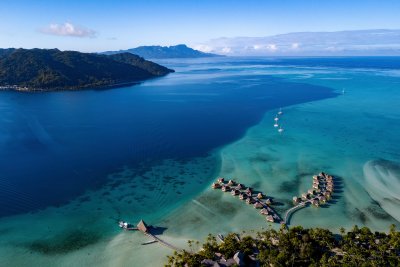![]() As elsewhere, the Covid-19 pandemic caused unprecedented challenges for the UNESCO marine World Heritage sites. The dramatic drop in tourism revenues left sites struggling to keep rangers on the payroll, prevent rising illegal activity, continue crucial scientific monitoring or secure food for local communities. During the 10 September online meeting, marine World Heritage managers will share insights on how they are dealing with the impacts of Covid-19. The meeting will also provide a platform to highlight the challenges and solutions which are being developed at the sites, or share initial lessons learned of sites which have already reopened. Participation is upon invitation only.
As elsewhere, the Covid-19 pandemic caused unprecedented challenges for the UNESCO marine World Heritage sites. The dramatic drop in tourism revenues left sites struggling to keep rangers on the payroll, prevent rising illegal activity, continue crucial scientific monitoring or secure food for local communities. During the 10 September online meeting, marine World Heritage managers will share insights on how they are dealing with the impacts of Covid-19. The meeting will also provide a platform to highlight the challenges and solutions which are being developed at the sites, or share initial lessons learned of sites which have already reopened. Participation is upon invitation only.
The UNESCO World Heritage List includes 50 marine sites across 37 nations, recognized for representing globally outstanding natural beauty and marine ecosystems, major stages in Earth’s history, and biodiversity hotspots. Local managers at these sites have confronted every imaginable problem facing our ocean, and many have created leading-edge solutions. Every two months, UNESCO’s World Heritage Marine Programme provides an exclusive online platform where managers from the 50 marine World Heritage sites connect & share ideas around key conservation challenges and solutions.
The objectives of the online meetings are threefold:
- Share conservation best practices and solutions from across the network;
- Bring leading ocean conservation expertise to the network;
- Promote conservation solutions from the marine World Heritage network to the broader ocean community.
Under the auspices of UNESCO World Heritage, expertise is shared from across the marine World Heritage network to avoid duplication of efforts. This happens through exchange of local staff between sites, meetings through a dedicated online platform, and tri-annual global managers conferences to share management challenges and conservation success stories. In 2019, managers joined up in Glacier Bay to align strategic future priorities for the next decade, discuss a wide variety of topics, and demonstrate leadership. Because of their high profile and status as flagship marine protected areas, marine World Heritage sites are uniquely positioned to drive change and innovation, set new global standards of excellence, and serve as beacons of hope in a changing ocean.
Fonte: UNESCO.org

